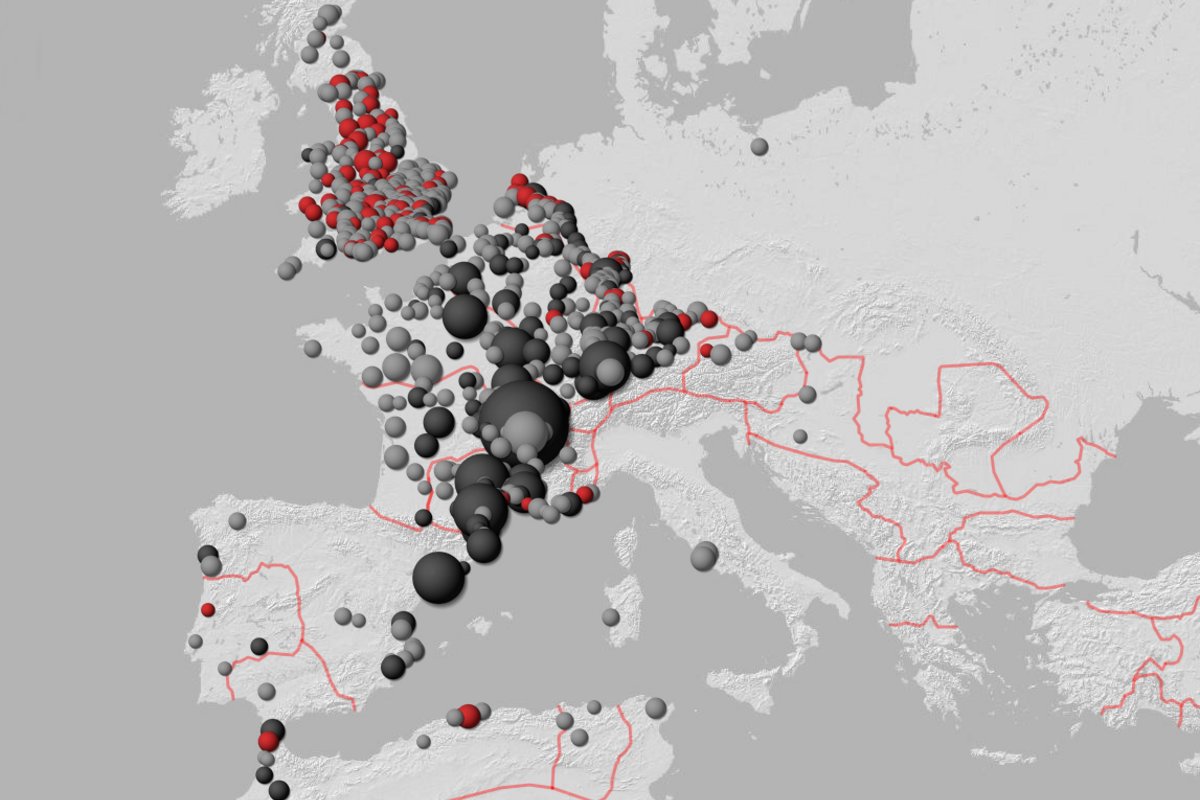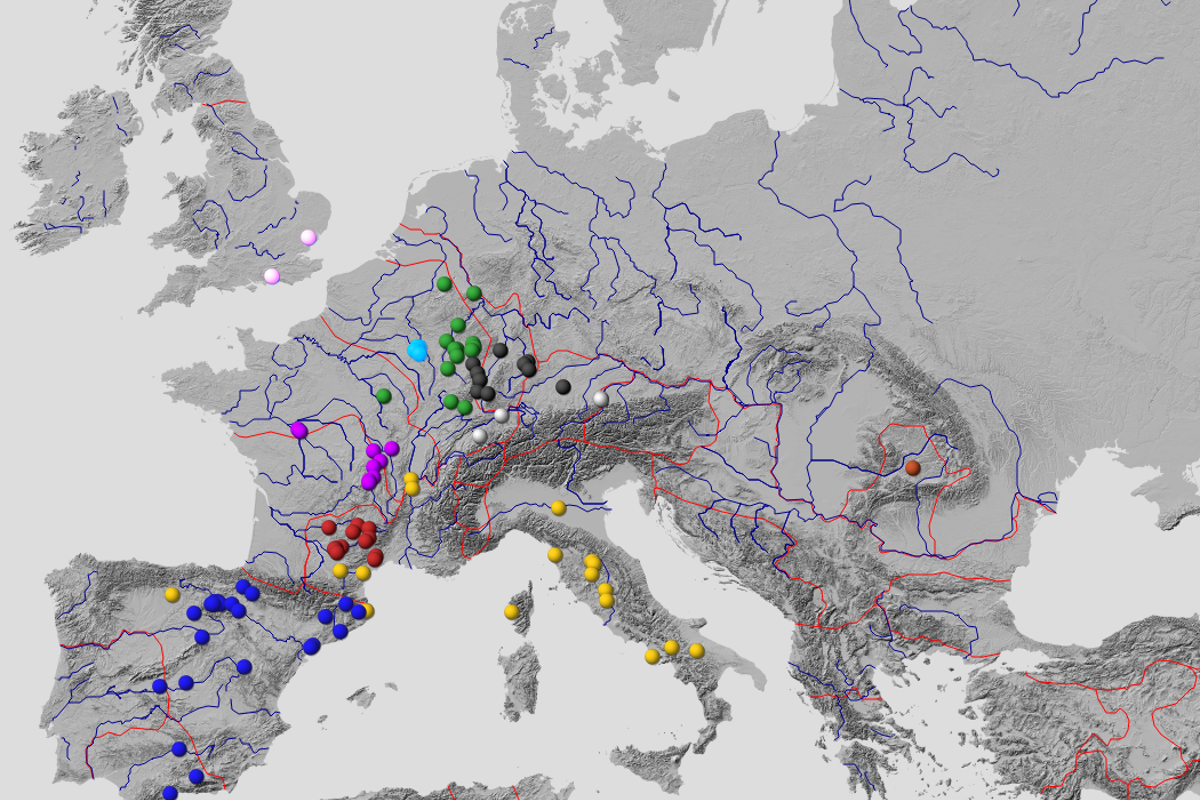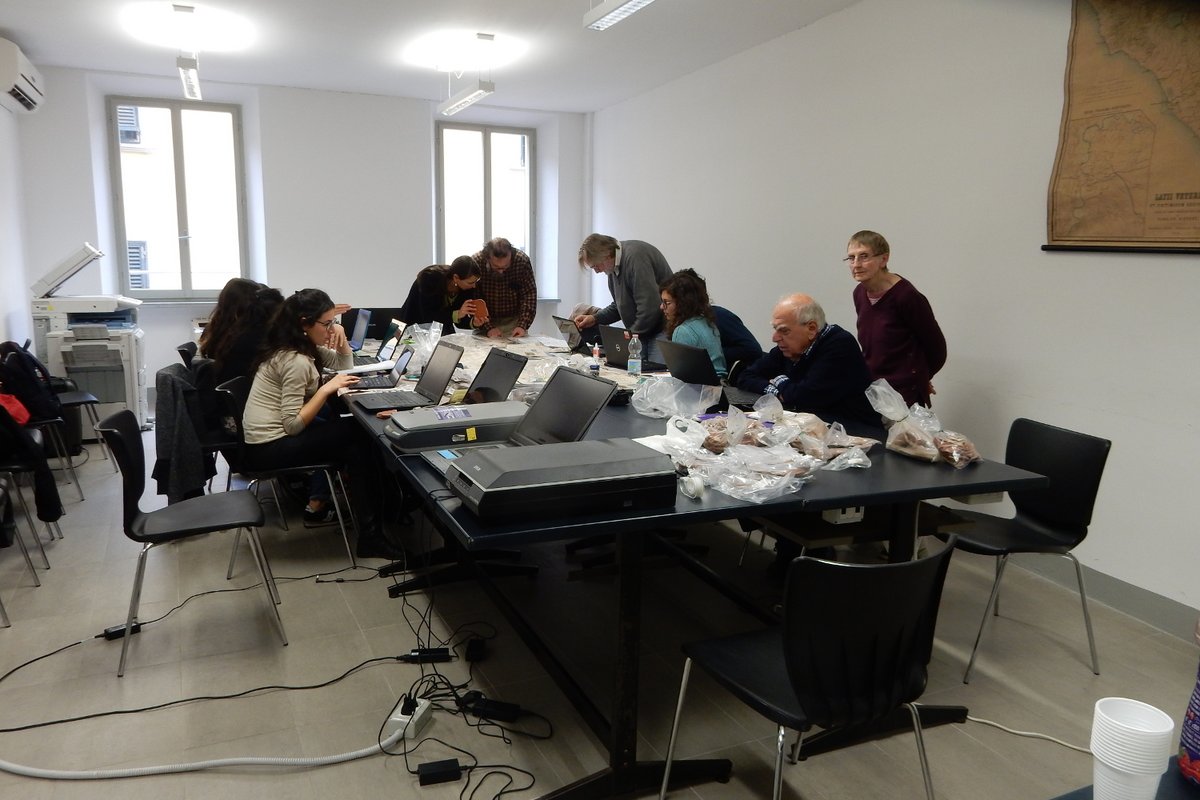Sales markets and organisation of Roman sigillata potteries
Big data and big business
The Roman Empire was supplied with terra sigillata (“Roman porcelain tableware”) throughout its territories. The production centres were mainly in Italy, Iberia and the Gallic and Germanic provinces. This gives rise to economic-historical questions as to the extent to which trade routes and sales centres can be reconstructed, or on the basis of which social, economic and legal parameters the found distributions came about.
The aim is to further expand the position of the existing online database “Samian Research” as an international, authoritative and leading repository on Roman trade issues in order to be able to develop cross-European research questions. In the coming years, the focus will be on the in-depth recording of production centres and distributions in Gaul, Iberia and the Danubian countries, in order to be better able to research the sales markets there. From this emerges the research goal of ascertaining to what extent the pre-industrial production and marketing structures of that time formed a basis for today’s European trade relations. A related means of achieving this goal is the establishment of an international research community for the collaborative curation of research data, as well as research into the production and marketing structures of the sigillata production centres. To this end, workshops lasting several days will be offered at various research institutions in Europe. During these events, the participants (teachers, students, citizen science) will be introduced to this digital research infrastructure.
Digital methods and tools are developed for research questions arising from the analysis of production and trade structures, by which Samian Research has developed – in addition to the original database functionality for determining pottery stamps – into a comprehensive toolbox with innovative digital analysis methods. At the same time, classical mapping tools are constantly being developed. The tools developed for specific subject domains provide in-depth insights into trade structures. The newly developed methods for interoperable integration of other resources – e.g. through LOD and SPARQL – enable real-time comparisons between statistically weighted amphorae and sigillata distributions. In terms of archaeological methodology, the project focuses on the development of data-driven bottom-up analysis procedures that fundamentally contribute to theory-building in Roman economic history research, starting from the disseminated materials.
- Copy link
- Print article
Contact
- Dr. Allard Mees
- +49 6131 8885-326
- Kontakt
Team
- Dr. Allard Mees
- Dipl.-Ing. (FH) Guido Heinz
- Florian Thiery
- University of Reading, Department of Archaeology (GB)
- University of Leeds, Department of Classics (GB)
- Institut Nationale de Recherches Archéologiques Préventives (INRAP) (F)
- Université catholique de Louvain, Faculté de Philosophie, Arts et Lettres (B)
- Université Blaise Pascal, Clermont-Ferrand/F, Centre d’Histoire Espaces et Cultures (GB)
- Université Jean Jaurès, Toulosue, Laboratoire TRACES – UMR 5608, Maison de la Recherche (GB)
- Landesarchäologie Speyer (D)
(selected)
- Matthias Flückiger, Erik Hornung, Mario Larch, Markus Ludwig, Allard Mees, Roman Transport Network Connectivity and Economic Integration, The Review of Economic Studies, 2021, rdab036, https://doi.org/10.1093/restud/rdab036.
- F. Thiery / A. Mees / D. Gottwald, Linked Open Samian Ware. https://doi.org/10.5281/zenodo.4305708
- A.W. Mees, Organisationsformen römischer Töpfer-Manufakturen am Beispiel von Arezzo und Rheinzabern unter Berücksichtigung von Papyri, Inschriften und Rechtsquellen (Monographien des RGZM, Band 52). Heidelberg: Propylaeum, 2020 eBook. https://doi.org/10.11588/propylaeum.519
- A. Mees, Big business in the roman economy. A military or civil affair? Regional and long distance trading patterns of the Roman Terra-Sigillata (Samian) industry. In: M. Bentz / Th. Helms (eds.), Craft production systems in a cross-cultural perspective (Bonn 2018), 151-170.
- A. Mees, Was there a Difference between Roman 'Civil' and 'Military' Samian (terra sigillata) Market Supply? Finding answers with statistical distribution analysis methods, Internet Archaeology 50, 2017. DOI: https://doi.org/10.11141/ia.50.16.
- A.W. Mees, The internal organisation of terra sigillata (samian) workshops. In: M. Fulford / E. Durham (eds.) Seeing Red: new economic and social perspectives on terra sigillata. Institute of Classical Studies, London 2013. Supplement 102: Vol. 10, 66-96.
- A.W. Mees / M. Polak, Scattered pots. Exploring spatial and chronological aspects of samian ware. In: M. Fulford / E. Durham (eds.) Seeing Red: new economic and social perspectives on terra sigillata. Institute of Classical Studies, London 2013. Supplement 102: Vol. 10, 36-48.
- B.R. Hartley / B.M. Dickinson, with G. B. Dannell, M.G. Fulford, A.W. Mees, P.A. Tyers, R.H. Wilkinson, Names on Terra Sigillata. An Index of Makers' Stamps & Signatures on Gallo-Roman Terra Sigillata (Samian Ware). Institute of Classical Studies 102, London 2010. Supplement 102: 01-09.
- A.W. Mees, Die Verbreitung von Terra Sigillata aus den Manufakturen von Arezzo, Pisa, Lyon und La Graufesenque. Die Transformation der italischen Sigillata-Herstellung in Gallien. Monographien des Römisch-Germanischen Zentralmuseums 93 (Mainz 2011).


